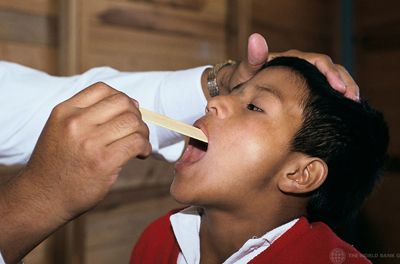Belize, Honduras, Jamaica, and Mexico Work Together to Strengthen Conditional Cash Transfer (CCT) Programs

Summary
Conditional Cash Transfer (CCT) programs in Latin America and the Caribbean (LAC) have improved the lives of millions of poor households across the region by improving children’s education and health (human capital), reducing poverty, and ensuring a minimum income for the poorest households. Implementing CCT programs requires significant institutional capacity to coordinate work across social sectors, and to implement beneficiary targeting systems, management information and monitoring systems, and transparent operational and technical processes.
The governments of Belize and Honduras (GOB and GOH) realized early in the development of their CCT programs that they needed to improve the capacity of their social assistance institutions. GOB and GOH asked the World Bank to facilitate a knowledge exchange to learn from two successful CCT programs: Oportunidades in Mexico and Programme of Advancement Through Health and Education (PATH) in Jamaica.
Using a unique approach, the World Bank helped organize the exchange as a double South-South exchange: policymakers and social program administrators in the four nations helped each other explore critical success factors for CCT programs, both well established and more recent.
This exchange enhanced the knowledge of policymakers and social program administrators in Belize and Honduras who learned about cost-effective and successful CCT programs, which helped them plan and implement their own CCT initiatives. The exchanges increased awareness of the need for well-targeted systems to reach vulnerable populations such as at-risk youth. They also learned about creating interministerial incentives to help ensure the verification of CCT co-responsibilities.
Beneficiaries / Participants
Conditional Cash Transfer (CCT) programs have generally been successful in reducing poverty and improving human capital in Latin America and the Caribbean (LAC). Despite very challenging circumstances – such as the increasing violence in Mexico – social safety net reforms have led to gains in the well-being of poor people throughout the region.
Countries with more fragmented programs and weaker implementation capacity, such as Belize and Honduras, are extremely interested in learning how countries with successful CCT programs manage the political aspects of reform at the highest levels of government. They also seek detailed insights into institutional dynamics that will ensure the success of CCT programs, even in the most remote areas. The governments of Belize and Honduras (GOB and GOH) wanted to improve the operational capacity of their social assistance institutions to deliver CCT effectively. GOB and GOH asked the World Bank to facilitate a knowledge exchange so they could learn from two successful CCT programs: Oportunidades in Mexico and Programme of Advancement Through Health and Education (PATH) in Jamaica.
The resulting exchange was organized as a double South-South exchange for sharing best practices in CCT implementation: policymakers and social program practitioners in the four nations exchanged knowledge as they explored various aspects of CCT programs, both well-established and more recent ones. While Belize and Honduras wanted to learn to develop CCT programs, Mexico and Jamaica wanted to learn about the recent challenges posed by the economic crisis and how to adjust CCT programs, including the possible synergies that may exist with labor policies.
Moving forward
The knowledge exchange strengthened communication between ministries within the participating countries, as well as among the ministries and technical staff of the four countries: the countries have joined a community of practice (www.right2reality.org) to help address frequent queries.
The exchange helped improve the design of new CCT programs in Belize and Honduras, while strengthen existing CCT programs in Mexico and Jamaica. Properly administered, CCT programs have proven to reduce poverty by providing incentives for parents in poor households to promote the health and educational development of children.

 China
China Colombia
Colombia Denmark
Denmark India
India Indonesia
Indonesia Mexico
Mexico Russian Federation
Russian Federation Spain
Spain United Kingdom
United Kingdom